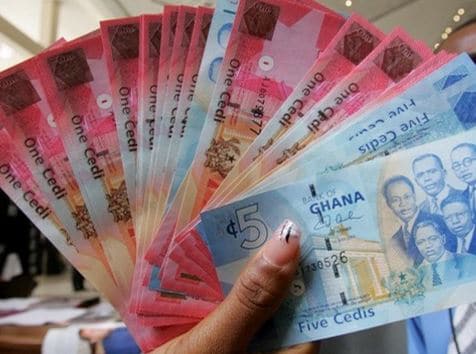… but other revenue streams keep dwindling
After being badly hit by the pandemic due to lockdown measures and restrictions on trade, new data show taxes generated from trade with other countries have rebounded strongly, a feat the Bank of Ghana has attributed to the effective revenue collection method implemented through the Integrated Customs Management Systems (ICUMS).
According to the bank’s quarterly bulletin report (Q3 2020), taxes generated from international trade within the stated period jumped to GH¢3.3billion from GH¢1.2billion the previous quarter. This represents 176.3 percent more than the budget target of GH¢1.2billion for the period.
The Bank of Ghana says the sector’s impressive performance can be credited to increased revenue from cost, insurance and freight (CIF) and the newly-instituted ICUMS, which has introduced changes in the revenue collection system and increased monitoring by various bodies and agencies.
The development is positive news for the economy, especially when compared to the First Quarter Bulletin report that showed taxes generated from international trade recorded GH¢829.7million lower than the budget target of GH¢1.2billion, with total import duty falling 34 percent below target and recording a year-on-year decline in growth of 42.5 percent – all due to closure of the country’s borders.
Other revenues
Despite international trade rebounding strongly, other sources of revenue continue to deplete; a sure indication that these sectors have still not been able to pick up the pieces after they were wrecked by effects of the pandemic. For example, taxes on domestic goods and services recorded revenue of GH¢3.4billion, which is 20.8 percentage points lower than the programmed target of GH¢4.3billion.
This tax component comprised Excise Duty and Petroleum Tax, VAT collections, National Health Insurance Levy, GET Fund Levy, as well as Communication Service Tax.
Petroleum Taxes, which constituted 83.1 percent of Excises, missed its target of GH¢1.15billion by 55.7 percentage points as it recorded revenue of GH¢510.1million. Again, VAT collection missed its budgeted target of GH¢2billion by 8.9 percentage points. This, the report said, was occasioned by lower-than-expected external VAT collections of GH¢572.1million against the target of GH¢927.4million.
Non-tax revenue also followed in the same path of disappointment as it generated GH¢1.5billion, representing 26.3 percentage points lower than programmed target of GH¢2.1billion for the third quarter of 2020.
Other revenue streams, such as the Energy Sector Levy Act (ESLA), also saw a decline of revenue to GH¢530-million for the review period against a target of GH¢730.4million. This the report attributes mainly to lower than anticipated demand in petroleum products due to impacts of the COVID-19 pandemic.
However, taxes from income and property during the third quarter recorded revenue of GH¢4.9billion – marginally higher than the programmed target of GH¢4.8billion. The increase, according to the central bank, was on account of improved collections in ‘self-employed’ taxes as well as other direct taxes by 47.6 percent and 30.5 percent respectively.
Government, however, has through the first-quarter budget expressed confidence that the revenue situation will get better in the fourth-quarter through to end of this year – banking such hopes on increased activity in the economy.










